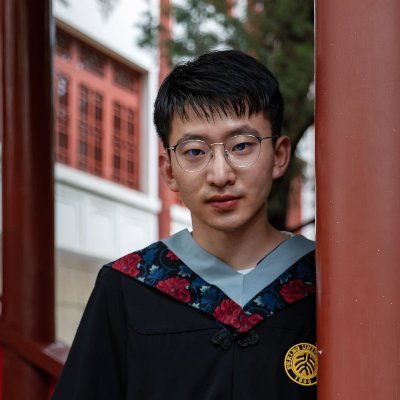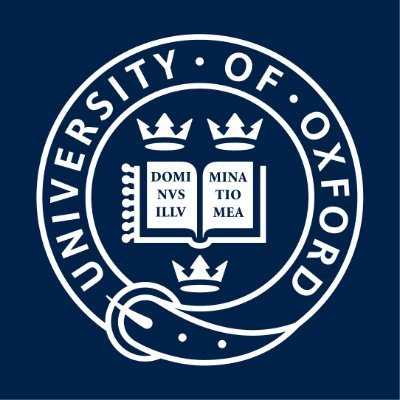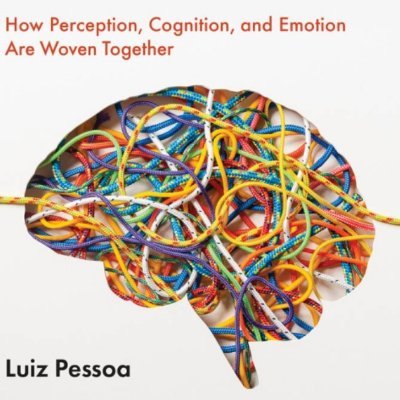
Deng Pan 潘登
@DengPan18
Followers
754
Following
1K
Media
53
Statuses
816
DPhil(PhD) canditate @UniofOxford @OxExpPsy | B.S. @PKU1898 #DecisionNeuroscience Love #Swimming & @ZoeDuan2 on 🦋 https://t.co/8A2QjH63hV
Oxford, UK
Joined February 2020
🚨We believe this is a major step forward in how we study hippocampus function in healthy humans. Using novel behavioral tasks, fMRI, RL & RNN modeling, and transcranial ultrasound stimulation (TUS), we demonstrate the causal role of hippocampus in relational structure learning.
Causal necessity of human hippocampus for structure-based inference in learning https://t.co/8NY1ltV2XU
#biorxiv_neursci
5
35
122
Online now: Between planning and map building: Prioritizing replay when future goals are uncertain https://t.co/OV8qS9r95K
1
13
54
Excited to introduce Dreamer 4, an agent that learns to solve complex control tasks entirely inside of its scalable world model! 🌎🤖 Dreamer 4 pushes the frontier of world model accuracy, speed, and learning complex tasks from offline datasets. co-led with @wilson1yan
82
355
3K
I’m super excited to finally put my recent work with @behrenstimb on bioRxiv, where we develop a new mechanistic theory of how PFC structures adaptive behaviour using attractor dynamics in space and time! https://t.co/umhunhmUk0 1/8
1
16
56
A rainbow perfectly captured over @magdalenoxford 🌈 📷 Instagram | Lucies_Oxford_Camera (photo taken last week)
23
126
977
Brain-wide representations of prior information in mouse decision-making
nature.com
Nature - Brain-wide recordings in mice reveal that prior expectations are distributed through recurrent loops across all levels of cortical and subcortical processing.
0
6
28
𝗟𝗮𝗿𝗴𝗲-𝘀𝗰𝗮𝗹𝗲 𝗰𝗼𝗿𝘁𝗶𝗰𝗮𝗹 𝗳𝘂𝗻𝗰𝘁𝗶𝗼𝗻𝗮𝗹 𝗻𝗲𝘁𝘄𝗼𝗿𝗸𝘀 𝗮𝗿𝗲 𝗼𝗿𝗴𝗮𝗻𝗶𝘇𝗲𝗱 𝗶𝗻 𝘀𝘁𝗿𝘂𝗰𝘁𝘂𝗿𝗲𝗱 𝗰𝘆𝗰𝗹𝗲𝘀 Static networks are good but how about their dynamics? (nothing is static in the brain) They temporally cycle. https://t.co/HobVu1to6f
5
58
213
𝗪𝗵𝗲𝗿𝗲 𝗱𝗼 𝗿𝗲𝘄𝗮𝗿𝗱𝘀 (𝘃𝗮𝗹𝘂𝗲) 𝗰𝗼𝗺𝗲 𝗳𝗿𝗼𝗺? Implications for reinforcement learning. Very interesting paper. https://t.co/CYzNoGfzyy
1
96
372
🚨We believe this is a major step forward in how we study hippocampus function in healthy humans. Using novel behavioral tasks, fMRI, RL & RNN modeling, and transcranial ultrasound stimulation (TUS), we demonstrate the causal role of hippocampus in relational structure learning.
Causal necessity of human hippocampus for structure-based inference in learning https://t.co/8NY1ltV2XU
#biorxiv_neursci
5
35
122
Very happy to share my first preprint from Oxford EP @OxNeuro ! We (me + co-first authors @lilwebian Miruna Rascu + PI Miriam Klein-Flügge + many others) used transcranial focused ultrasound stimulation (TUS/tFUS/LIFU) of the human amygdala ... (1/15)
1
10
22
@OxExpPsy @UniofOxford @alimahmoodi88 @MKFlugge @simonedambrogio @MiruRascu @pranav_sankhe @SkylerLuo1 @mkwittmann @marcelomattar @behrenstimb For people who are moving to Bluesky, here's the thread 🦋:
0
0
2
@OxExpPsy @UniofOxford @alimahmoodi88 @MKFlugge @simonedambrogio @MiruRascu @pranav_sankhe @SkylerLuo1 We also thank @mkwittmann, @marcelomattar, and people from Behrens Lab @behrenstimb, for their helpful comments on this work! Also had a lot of fun presenting this at #RLDM2025 and #CCN2025. We really appreciate all the generous feedback.
1
0
2
🙏 Huge thanks to everyone in the Rushworth Lab and collaborators @OxExpPsy @UniofOxford who made this work possible: @alimahmoodi88 , @MKFlugge , @simonedambrogio , @MiruRascu , Naomi Kingston, @pranav_sankhe , @SkylerLuo1 , and my incredible mentor Matthew Rushworth.
1
0
1
6. 🚀 This is enabled by transcranial ultrasound stimulation (TUS)—a safe, reversible, precise method to non-invasively probe deep brain function, which finally makes the hippocampus accessible in healthy humans. Here is me being stimulated to test the TUS effect myself.
1
0
2
5. 🌟Empirical evidence: Using TUS to temporarily modulate hippocampal activity in healthy humans, we primarily disrupted their ability to use relational knowledge for inference, confirming its causal necessity for relational structure learning.
1
0
0
4. ⏩Computational predictions: An RNN trained on our task developed hippocampus-like units encoding relational structure. Lesioning these units selectively disrupted inference — predicting the hippocampus’s causal role.
1
0
0
3. 🧠 Neural basis: using fMRI, we show that such relational knowledge is consistently represented in the hippocampus across diverse contexts, in a manner distinct from other brain regions. Next, we asked: Is this representation causally necessary for structure-based inference?
1
0
0
2. 🤖 Our RL models show that only models with relational knowledge capture human behaviour, outperforming experience-only models.
1
0
1
1.👥 When meeting new people, we don’t learn about them from scratch — in our “Goalkeeper Game”, participants showed structure-based inference by leveraging relational knowledge to rapidly learn new relationships in changing environments.
1
1
0









